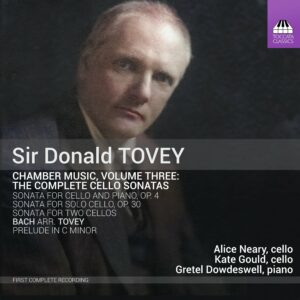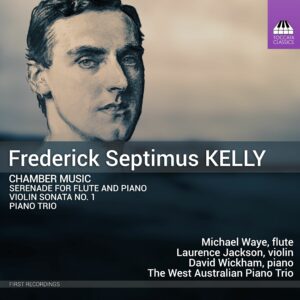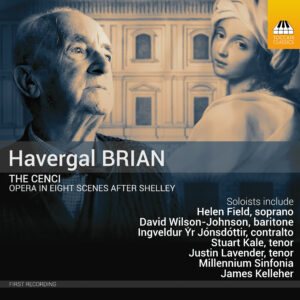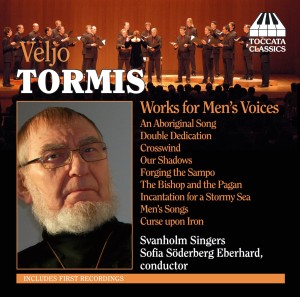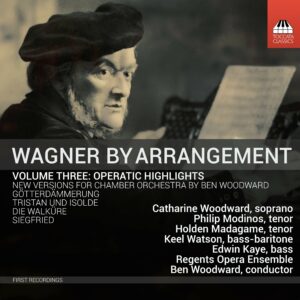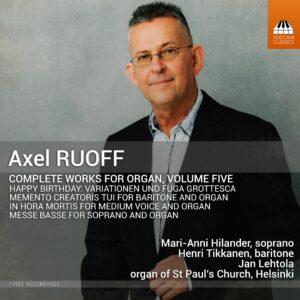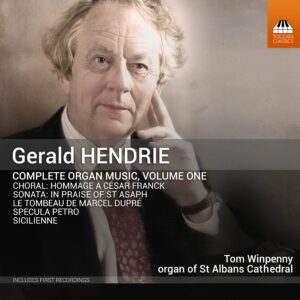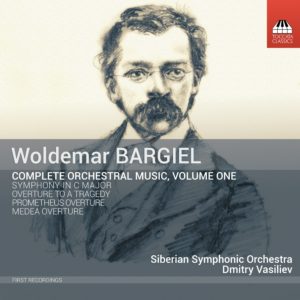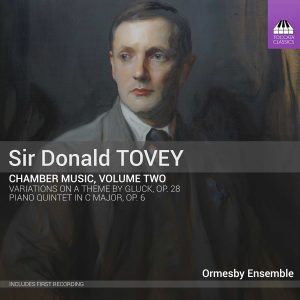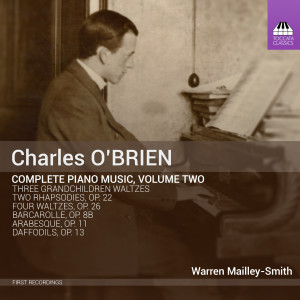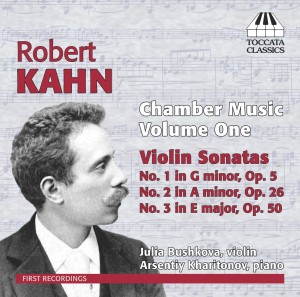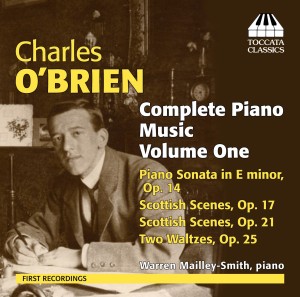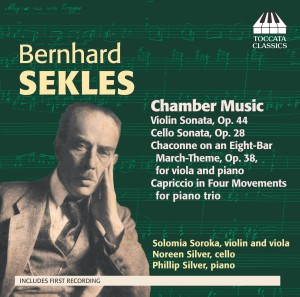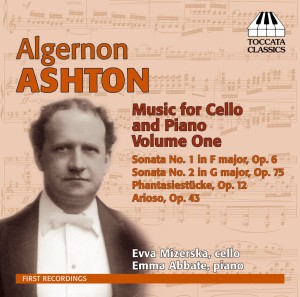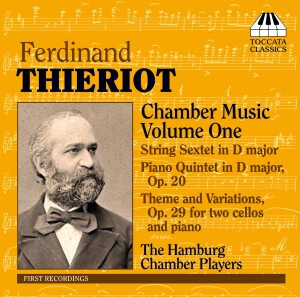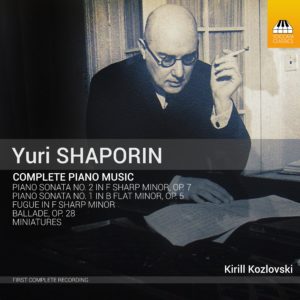Search Results for "shuangseqiu-【✔️官网AA58·CC✔️】-msi 赔 率-shuangseqiunkhq8-【✔️官网AA58·CC✔️】-msi 赔 率rmv9-shuangseqiu3mwpj-msi 赔 率iltb"
Sir Donald Tovey: Chamber Music, Volume Three: The Complete Cello Sonatas
Sir Donald Tovey (1875–1940), long hailed as one of the finest writers on music in English, saw himself primarily as a composer. His occasionally turbulent friendship with Pau Casals was the spur for a monumental concerto and one of his three cello sonatas: for solo cello, two cellos and cello with piano. The cello was the ideal instrument for Tovey’s Brahmsian musical language, with its long, singing lines unfolding in effortless counterpoint – though the huge passacaglia that ends the solo sonata also demands a virtuoso technique. The brief Bach arrangement recorded here for the first time arose when the twelve-year-old Tovey added a cello line to one of Bach’s best-known preludes, originally for lute.
Alice Neary, cello
Kate Gould, cello (Tracks 1–3)
Gretel Dowdeswell, piano (Tracks 4, 8–10)
Frederick Septimus Kelly: Chamber Music
Frederick Septimus Kelly, born in Sydney in 1881, was on the way to becoming one of Australia’s most important early composers when he was killed during the Battle of the Somme in 1916. The three works recorded here – for the first time – underline just how grievous was that loss, not only for Australia but for the musical world more generally. Kelly’s D minor Violin Sonata is an astonishingly assured work for a twenty-year-old student composer; his Serenade for flute and piano exudes good-natured charm; and the two surviving movements of his Piano Trio – which have a Brahmsian intensity – suggest that he would have been one of the major composers of the twentieth century.
Laurence Jackson, piano
Michael Waye, flute
David Wickham, piano
The West Australian Piano Trio
Havergal Brian: The Cenci
The Cenci (1951–52) is Havergal Brian’s operatic realisation of Shelley’s gruesome tale of incest and parricide in Renaissance Italy. The score calls it simply ‘Opera in Eight Scenes’, but it rarely goes in for grand tunes; instead, its dark colours reflect Shelley’s fascination with the struggle between good and evil. Stylistically, it is an unusual but highly effective hybrid: a music-drama focused on the intense delivery of Shelley’s text, with the declamatory style of the vocal lines echoing such recent oratorios as Stravinsky’s Oedipus Rex and Honegger’s Jeanne d’Arc au bûcher, and the freewheeling orchestral writing producing something of a vocal symphony.
Helen Field, soprano
David Wilson-Johnson, baritone
Ingveldur Ýr Jónsdóttir, contralto
Stuart Kale, tenor
Justin Lavender, tenor
Jeffery Carl, baritone
Nicholas Buxton, tenor
Devon Harrison, bass
Serena Kay, soprano
The Millennium Sinfonia
James Kelleher, conductor
Veljo Tormis: Works for Men’s Voices
The Estonian composer Veljo Tormis (born in 1930) has carved a unique position for himself in contemporary music. By marrying the quasi-minimalist rhythmic vigour of Estonian runic singing – a tradition some 3,000 years old – with the extended techniques of modern choral writing, he has created a body of music tingling with excitement, energy and power. Many of the works on this CD – where the composer, playing shaman drum and anvil, joins one of Scandinavia’s brightest young choirs – draw on folk sources in a reaffirmation of Estonian identity; others evoke the forces of nature as a metaphor for political upheaval.
Svanholm Singers, choir
Sofia Söderberg Eberhard, conductor
Wagner by Arrangement: Volume Three, Operatic Highlights
Necessity being the mother of invention, the English conductor Ben Woodward has arranged the full-symphonic textures of some of Wagner’s operas for eighteen-part chamber orchestra to bring them within range of the forces available to Regents Opera in London – arrangements which should, indeed, put them with the reach of smaller companies everywhere. This new ‘room-sized Wagner’ enhances the sense of scale of the originals with a striking degree of clarity.
Catharine Woodward, soprano: Brünnhilde (Tracks 1,3,4), Isolde (Track 5)
Keel Watson, bass-baritone: Wotan (Track 1)
Philip Modinos, tenor: Siegfried (Tracks 2,3)
Holden Madagame, tenor: Mime (Track 2)
Edwin Kaye, bass: Hagen (Track 4)
Regents Opera Ensemble
Ben Woodward, conductor
Axel Ruoff: Complete Works for Organ, Volume Five
This final instalment of the organ compositions of Axel Ruoff (born in Stuttgart in 1957) presents two starkly contrasted sides of his musical personality: three of them, for voice and organ, are concerned with the spiritual – two even addressing head-on the issue of death itself – and are thus solemn and hieratic, whereas the concluding work is a whimsical, tongue-in-cheek set of variations on ‘Happy Birthday’, written as a present for Ruoff’s publisher on his 80th birthday.
Mari-Anni Hilander, soprano
Henri Tikkanen, baritone
Jan Lehtola, organ of the St. Paul’s Church, Helsinki
Gerald Hendrie: Complete Organ Music, Volume One
The organ music of Gerald Hendrie – born in England in 1935 but resident in France since 1996 – encompasses a huge range of influences, among them the organist-composers who went before him (not least Franck, Dupré and Messiaen), dodecaphony, mediaeval plainchant and modality and jazz. The resulting works are as varied as the styles that fed into them, from grandiose to gentle, from severe to whimsical, from lyrical to lively.
Tom Winpenny
Woldemar Bargiel: Complete Orchestral Music, Volume One
Woldemar Bargiel (1828-97) was one of the best-known composers of his day, an important teacher and Clara Schumann's half-brother, but his music has been largely forgotten. His only symphony has a Beethovenian drive, and his three published orchestral overtures, which are symphonic poems in all but name, lie downstream from Schumann, with a Brahmsian weight and power.
Siberian Symphony Orchestra, Dmitry Vasilyev
Sir Donald Tovey: Chamber Music, Volume Two
The exploration of Sir Donald Tovey’s music on Toccata Classics continues apace with two highly contrasted works: the bright, Classically oriented Variations on a Theme by Gluck, Op. 28, for flute and string quartet written in 1913 and the Piano Quintet from thirteen years earlier – an expansive, Brahmsian work of symphonic scale: it is almost an hour in length.
Ormesby Ensemble
Sarah Brooke, flute (Tracks 1–7)
Robert Atchison, violin
Jacqueline Hartley, violin
Bill Hawkes, viola
David Jones, cello
Olga Dudnik, piano (Tracks 8–11)
Charles O’Brien: Complete Piano Music, Volume Two
Charles O’Brien (1882–1968) was a mainstay of musical life in Edinburgh, but his attractive, lyrical muse has long been forgotten even there, let alone anywhere else. This third recording in a series devoted to his music reveals a composer whose lively music reflects his Scottish heritage, mixing Brahmsian grand gestures with Schumannesque intimacy.
Warren Mailley-Smith, piano
Robert Kahn: Chamber Music, Volume One
Robert Kahn, born in Mannheim in 1865, produced a large body of gloriously attractive chamber music, expertly crafted and basically Brahmsian in style. His three violin sonatas, written over a twenty-year-period at the end of the nineteenth and beginning of the twentieth centuries, reveal a lyrical composer in the Romantic mainstream but capable of considerable formal inventiveness.
Julia Bushkova, violin; Arsentiy Kharitonov, piano
Charles O’Brien: Complete Piano Music, Volume One
Charles O'Brien (1882-1968) was a mainstay of musical life in Edinburgh, but his attractive, lyrical muse has long been forgotten even there, let alone anywhere else. This first recording in a series devoted to his music reveals a composer whose lively music reflects his Scottish heritage, mixing grand gestures with Schumannesque intimacies and Brahmsian bravura.
Warren Mailley-Smith, piano
Bernhard Sekles: Chamber Music
Bernhard Sekles (1872-1933) was one of the leading figures in German music in the first decades of the twentieth century, prominent as composer, educator and administrator. In 1928, as director of the Hoch Conservatorium in Frankfurt, he established the first academic programme in jazz studies, an act of courage and conviction that unleashed furious attacks from the Nazi press. His own music, banned during the Third Reich, has been virtually forgotten, although he composed in all major genres, including opera, symphony, lieder and chamber music. As the works on this recording illustrate, Sekles' music finds room for diverse elements — including Neoclassicism, Brahmsian Romanticism and jazz — and can be refreshingly quirky.
Solomia Soroka, viola, violin
Noreen Silver, cello
Phillip Silver, piano
Algernon Ashton: Music for Cello and Piano, Volume One
Algernon Ashton, born in Durham in 1859, is one of the best-kept secrets in British music, with a generous output of piano music, chamber works and songs. Rutland Boughton wrote that he 'seems to pour out great musical thought as easily as the lark trills its delight in cloudland': although Ashton's writing for both cello and piano is virtuosic, what strikes the ear is the quality of his melodic inspiration — the lyrical immediacy of his tunes suggests Schubert, set in a style of Brahmsian richness.
Evva Mizerska, cello
Emma Abbate, piano
Ferdinand Thieriot: Chamber Music, Volume One
Ferdinand Thieriot (1836-1919) was, like Johannes Brahms, a student of Eduard Marxsen in Hamburg; Brahms remained a friend in later years — and Thieriot's music does indeed have a Brahmsian warmth and richness. His works, the chamber music especially, was popular during his own lifetime but since his death in 1919 it has been totally forgotten — not least because the archives containing his manuscripts were taken to Leningrad after the Second World War. It is time to rediscover this generous and big-hearted music, which overflows with memorable melodies.
Piano Quintet, Op. 20
Theme and Variations, Op. 29
String Sextet in D major
Yuri Shaporin: Complete Piano Music
With its roots in the tradition of Borodin and Mussorgsky, the music of the Ukrainian- born Soviet composer Yuri Shaporin (1887–1966) sits between the late Romanticism of Skryabin and the harder edges of Shostakovich and Prokofiev, blending a mastery of counterpoint with an acute sense of Russian keyboard colour. In Shaporin’s piano music his fondness for the epic – expressed in two large-scale sonatas and a mighty passacaglia – is contrasted with a number of gentle, almost whimsical miniatures.
Kirill Kozlovski, piano
Join our Newsletter
Your Basket
Stay In the Know
JOIN THE TOCCATA NEWSLETTER
"*" indicates required fields
By visiting our site, you agree to our privacy policy regarding cookies, tracking statistics, etc. Read more
